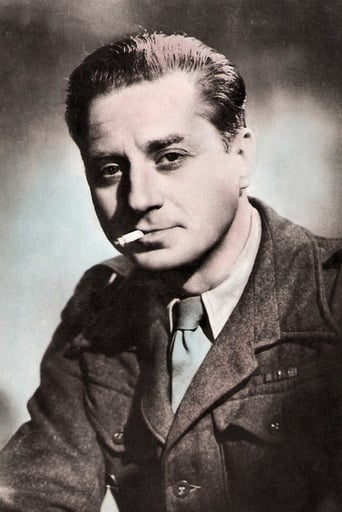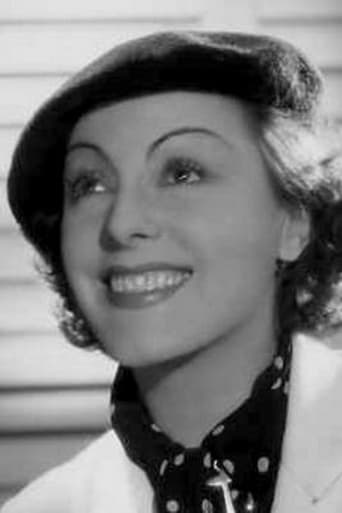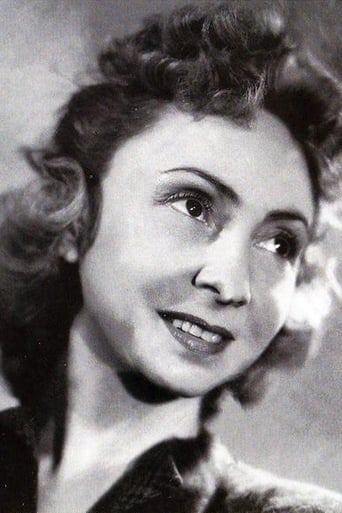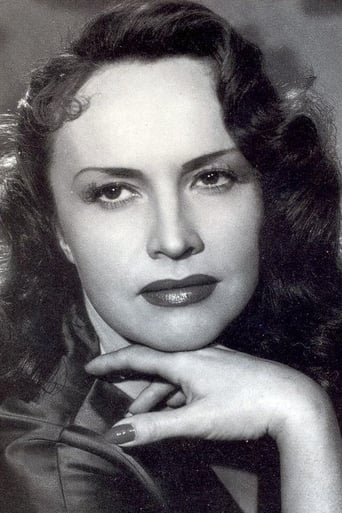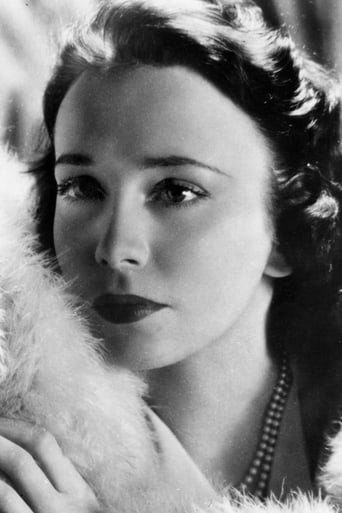Moustroll
Good movie but grossly overrated
Voxitype
Good films always raise compelling questions, whether the format is fiction or documentary fact.
Bob
This is one of the best movies I’ve seen in a very long time. You have to go and see this on the big screen.
Dana
An old-fashioned movie made with new-fashioned finesse.
ronchow
For me viewing 'Le Plaisir' in the DVD format happened by chance, as I knew nothing about Max Ophuls and the film until then. And what a surprise! It is good old-fashioned story telling (three stories) with a movie camera, in black and white. If not done right this can be a very boring exercise, but not with Le Plaisir.Story 1 about an old man putting on a mask to look young is probably the weakest story of the three. Story 2 about several women of pleasure taking time off in the country side is my favourite. All in all, the film is definitely engaging and the stories were well told. Max Ophuls, whom I knew nothing about, is on my watch list.A very enjoyable film for a quiet evening.
axsmashcrushallthree
It is difficult to illuminate much more than has already been described in other comments. Aside from limited clips of "Letter from an Unknown Woman", this is the first Ophuls film that I've seen. Thankfully, all four of his 1950's masterpieces are now available on DVD, but I write with the appreciation of one who is just discovering this director.This film is certainly a near if not complete masterpiece, and compares well to my favorite film of 1952, Becker's "Casque d'Or", particularly in how both films commence with indelible scenes that personify each director's method.Here, I so thoroughly enjoyed seeing some of my favorite actors - Pierre Brasseur, Danielle Darrieux, Jean Servais, Simone Simon, and particularly Jean Gabin. It seems that the leitmotif of pleasure is communicated so resoundingly, so subtly by camera work that is astonishingly pulsating yet perceptive. The purity and clarity of emotion is brought forth through the movement and transition of the wonderful Guy De Maupassant stories, not through strict character development.I give this film a 10, but I somehow feel that I will find other Ophuls films, such as "La Ronde" or "Madame De", to be its equal. I look forward to viewing them.
dbdumonteil
One of Max Ophuls' finest achievements,one of the best Guy de Maupassant adaptations for the screen.This is a movie made up of three sketches;it is rather a long story (la maison Tellier) framed by one prologue (le masque) an an epilogue (le modèle).Guy de Maupassant is ,by far,the best writer France as ever known,as far short stories are concerned-He wrote about 200 of them,and even influenced Dudley Nichols for the screen play of "stagecoach"(actually ,Claire Trevor was Boule de Suif)Le plaisir (the pleasure) is something fleeting,but the hero of the prologue(le masque) can't stand life is passing him by.His wife is a victim,women are often sacrified in Maupassant's work.At best they are ways for men to social advancement(Bel Ami,see "the private affairs of Bel-Ami", filmed by Albert Lewin ,1947,watchable,but which has given a totally false rendering of the conclusion),at worst ,once their lover or husband has used them ,they are often deserted (see "une vie" , directed by Alexandre Astruc,1958,which has a fine Claude Renoir cinematography."La maison Tellier" is the main body of the work:the subject is scandalous:madam and her whores close the brothel and head for the country.There,they are to attend madam's niece's communion.Max Ophuls has not always been faithfull to Maupassant:if you read the short story,you will realize how much these women are ugly,vulgar and fat;here ,we've got gorgeous Danielle Darrieux,plus Ginette Leclerc and Madeleine Renaud.Ophuls is an esthete and he could not subscribe to Maupassant's depictions.The two men come together when it comes to describe the reactions of the inhabitants of the village:the prostitutes pass for grandes dames,well educated,chic,and when they enter the church,it seems as if they enhance the religious fervor !!Maupassant,who was anticlerical to a fault,lets his irony flow;but there's compassion in Max Ophuls'pictures and I'm not sure the tears his heroines shed are that much laughable:regaining a child's soul -particularly on this communion day- is many a human being's secret longing.But cynism get the upper hand quickly and madam's brother,a bawdy Jean Gabin (the father of the little girl making her communion),is much more interested in his sister's "residents" than spiritual elevation.This second part climaxes the movie,with its steam-powered train,its banquet,its brothel of which the shutter are closed -we're only allowed to have a glimpse behind them-The movie opens and closes the same way:woman is born to be deserted when she's not a whore,like in the second sketch.Josephine (Simone Simon) will find her lover back but the price she will have to pay is terrifying.Why "le plaisir" ?Pleasure is few and far between in this world.Pleasure walks hand in hand with suffering.Guy de Maupassant himself knew fleeting pleasures he describes in part 2,but if you read his biography,you 'll meet a tormented soul,an extremely pessimistic mind,and a faux bon vivant who lived a dissipated life which ended in madness.This is one of the most absorbing,ambitious,complex and artistically successful masterwork of the French fifties.
allyjack
Happiness, says the narrator at the end, is not a lark. And the film believes it, even though as he speaks the glimpses of children playing with kites and daintily placed chairs on the beach (echoing those set out earlier by Gabin in the back of his cart for the visiting prostitutes) continue to evoke the swirling compositional grace and elegance which mark the film's every moment. Far more unpredictable and radical than most portmanteau films, the highlight is the second story, which at first seems to be about a group of men who get together one night when the local brothel is closed, then follows the whores' trip to the country (with a delightful interlude on the train as they share the compartment with an old peasant couple and a randy salesman); then returns to the brothel - Ophuls' highly liberal camera ultimately pans deliriously around the windows from the outside as the place fills with dance, spilling celebration and delight. The many surprises of that story perfectly evoke the enormous span of human emotional experience; it touches on so many dreams of escape whereas the other two episodes, both much shorter and darker, remind us of the occasional price of such dreams.

